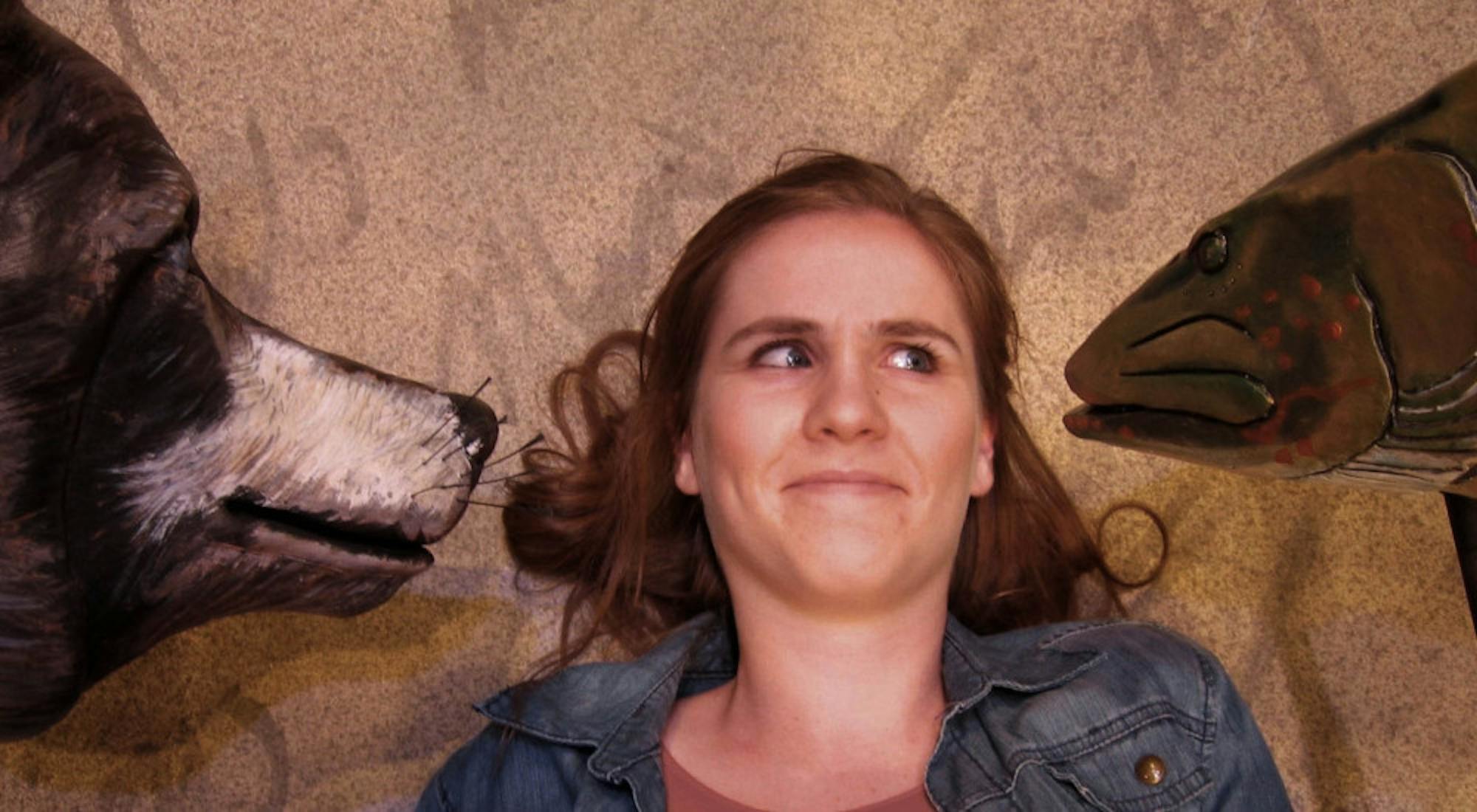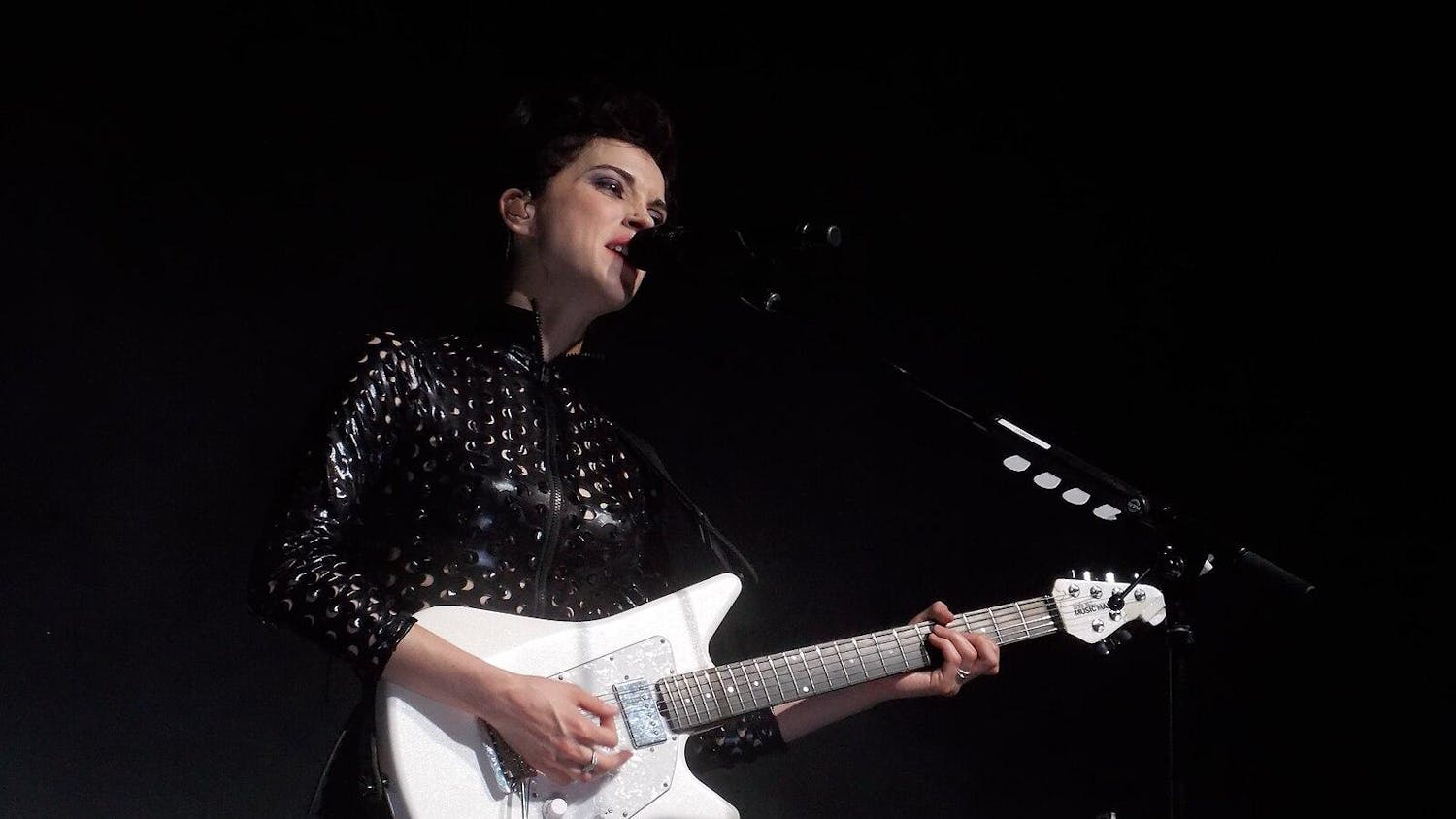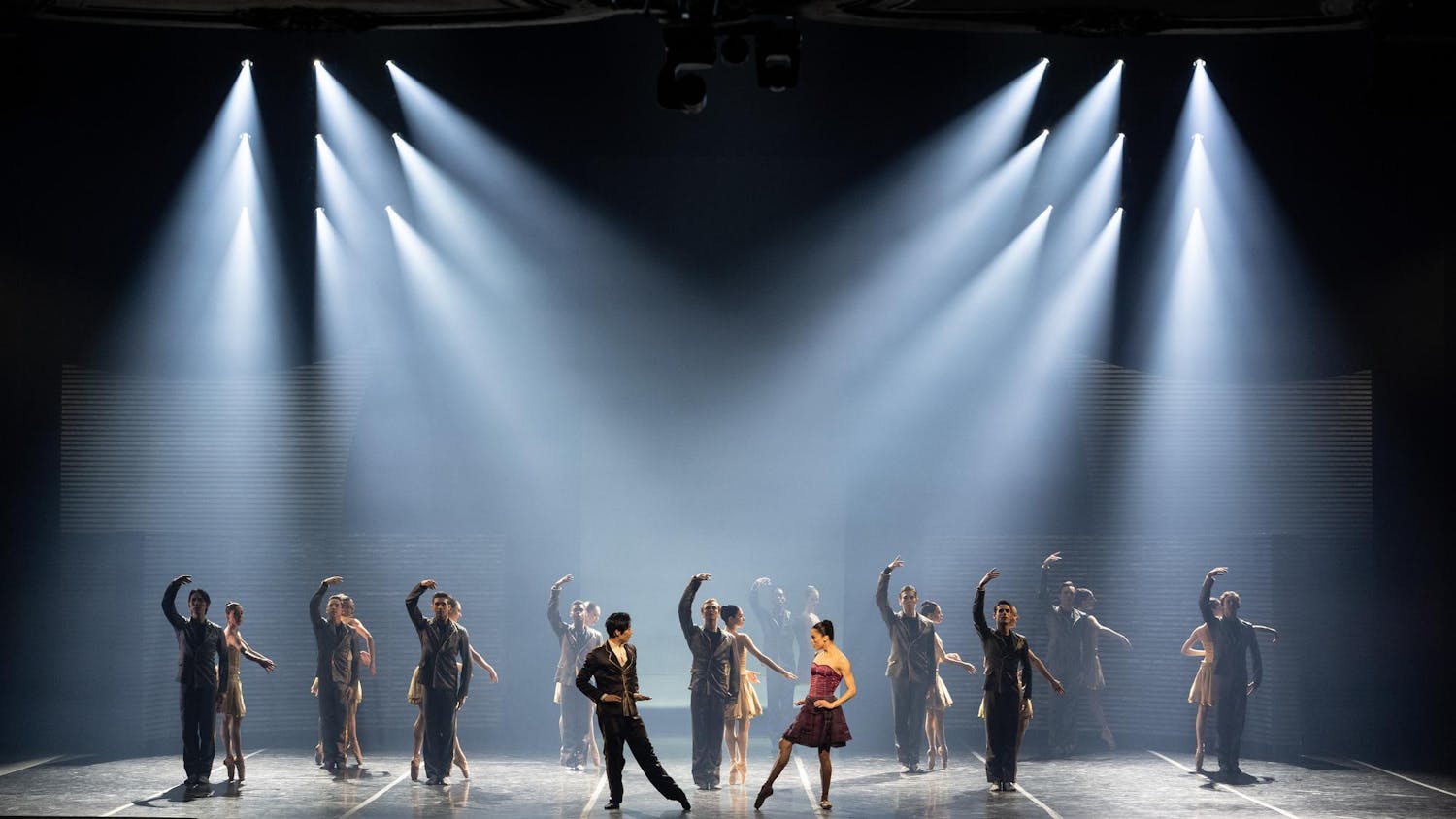“From Orchids to Octopi: An Evolutionary Love Story,” a play presented by the Department of Drama and Dance, finished its final performance on Saturday, Nov. 1.The production was directed by Natalya Baldyga, an associate professor within the department,and the play was written by Melinda Lopez. The Tufts production was solid, featuring beautiful performances from many students and a creative use of set design and lighting. However, Lopez's play is inherently flawed due to scattered themes and lack of narrative consistency. It was certainly different from traditional theater fare, but its muddied storytelling prevented the show from being truly memorable.
“Orchids to Octopi” is centered on the trials and tribulations of an artist, Emma, played by senior Christina Moore, as she struggles to create a mural reflecting the evolutionary principles first outlined by Charles Darwin. While she is supposedly creating this mural for a new museum, it is never made clear where exactly the mural will be placed or why the theme was chosen. The woman is also expecting her first child with her husband Charles, a chef launching his new restaurant, who was played by junior Ed Rosini. The story of their relationship mirrors that of Charles Darwin and his wife Emma. In an astounding bit of subtlety, the artist and her husband are also named Emma and Charles.
Darwin and his wife, played by junior Tyler Beardsley and sophomore Lizzie Boston respectively, often appear to modern day artist Emma as she works on her mural. It’s unclear to the audience why these apparitions are visiting her: Are they hallucinations? Ghosts? Don’t their spirits have anything better to do than visit a whiny artist and teach her about evolutionary principles?
Emma, the artist, is an unabashedly whiny character. Her self-centric worldview is sharpened by Moore’s tendency to shout her lines, engaging in long-winded monologues with gusto. The actress’s eagerness is slightly off-putting for the majority of the show, although the overacting comes in handy during the emotional climax of the play. Moore’s characterization of Emma is most realistic in her scenes with her husband Charles, played with charm and tenderness by Rosini. Charles’s purpose in the show seems to be only to act as the perfect man: handsome, devoted, creative and successful. Charles is a one-note character who could be rendered inert if not for Rosini’s commitment to the part. Charles is thus portrayed, perhaps, as the most complex character of the show -- a testament to Rosini’s talent. The scenes between Emma and Charles, whether they are fighting or kissing, are the show's most tender moments and keep the play grounded in some semblance of reality.
Beardsley, too, is excellent as Darwin. When the audience first meets him he is describing some natural phenomenon, and his body language is almost mechanical. Darwin's passion shines through, but he seems solely consumed by science rather than by any human emotion. As Darwin marries Emma and the production delves into his relationships, his human dimensions become more apparent. Beardsley makes it obvious that Darwin’s dedication to science can be a crutch on which he leans instead of facing the pain of reality. It’s a touching performance, and one that could easily be the focal point of its own play.
In reality, “Orchids to Octopi” seems to really be three stories rolled into one: that of Charles and Emma, that of Charles Darwin and Emma Darwin and that of evolution itself. Evolution itself is depicted as a kind of carnival in the production. It is this third aspect that is the most odd, and should have probably been omitted. Senior Kendrick Terrell Evans is billed as the Carnival Barker, a man whose purpose seems to be to explain evolutionary principles in a loud and entertaining fashion. Evans does a very good job with this odd character, vacillating between being charming and threatening. However, the Carnival Barker’s incursions on the show seem unfocused and out of place, further obfuscating the purpose of the carnival element.
“Orchids to Octopi” takes far too long to get to the point, and -- when it finally does -- the point is trite and cliche. After all that buildup, the audience learns that humanity is all connected in a circle of evolution and love. It’s a disappointing ending to a silly story. Each of the student actors were individually strong, and the set design was brilliant. These elements, including standout senior Kira Patterson as an eccentric OB-GYN, contributed overall to elevating the quality of the show. Unfortunately, the lack of consistency within the show itself made for a confusing, unfocused play. The production itself was excellent, but even the efforts of all those involved couldn’t save this mess.
Students deliver a standout production of disappointing play, 'From Orchids to Octopi'

"Orchids to Octopi" featured good student performances, but suffered from a muddled plot.
Summary
“Orchids to Octopi” takes far too long to get to the point, and -- when it finally does -- the point is trite and cliché.
3 Stars





